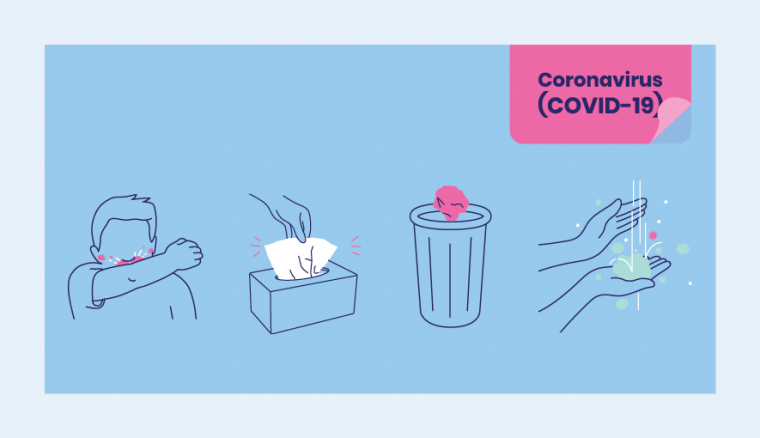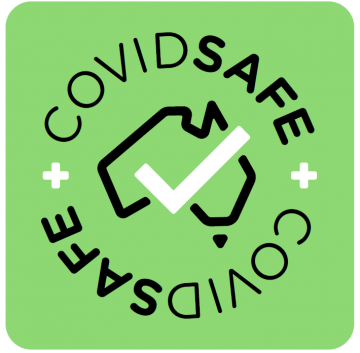CORONAVIRUS (COVID-19): ADVICE TO MEMBERS/CLUBS
Updated: April 28, 2020
Coronavirus (COVID-19) is increasingly having an impact on the global community and is a rapidly evolving issue.
The resource below is intended to provide an overview of the currently available information from the Australian Federal Government related to the virus and what measures and precautions members of the Australian bowls community should put in place.
Latest bowls-specific advice:
- Relaxed COVID-19 restrictions on bowls confirmed (April 27, 2020)
- In lieu of the differing levels of restrictions being set by the State Governments in SA, NT & WA, the guidelines listed in the article below are effective immediately in these states.
- All other states must wait until the National Principles for sport/activity are released and any state legislation or restrictions are relaxed.
- Australian Government enforces closure of licensed clubs (March 23, 2020)
National and International events affected:
- 2020 World Bowls Championships – POSTPONED INDEFINITELY
- 2020 Australian Open – CANCELLED
- 2020 Australian Indoor Championships – CANCELLED
- 2020 World Singles Champion of Champions – CANCELLED
- 2020 Nationals – PARTIALLY CANCELLED/POSTPONED
More information:
- Bowls Australia announces changes to upcoming major events (March 19, 2020)
- World Bowls Championships rescheduled for 2021 (March 31, 2020)
- World Singles Champion of Champions cancelled (April 25, 2020)
- 2020 Nationals: Update (April 28, 2020)
Support measures for clubs, employees & participants:
- Read more here
What is COVID-19?
COVID-19 is a respiratory illness caused by a new virus. Symptoms range from a mild cough to pneumonia. Some people recover easily, others may get very sick very quickly. There is evidence that it spreads from person to person. Good hygiene can prevent infection.
COVID-19 was first reported in December 2019 in Wuhan City in China.
The most common symptoms are fever, cough and shortness of breath. It can be difficult to tell the difference between COVID-19 and other common respiratory illness particularly in the early stages of illness. Individuals should consult with their doctor by calling ahead. The doctor can take a thorough history, including travel history, perform a physical exam and make a recommendation regarding testing for COVID-19.
How unwell does COVID-19 make you?
COVID-19 results in a spectrum of illness ranging from possible asymptomatic carriage, common cold to severe cases requiring hospital admission. In a small minority of cases, COVID-19 can be fatal.
How contagious is COVID-19 and how does it spread?
Analysis of the number of cases from the Diamond Princess suggests that COVID-19 is more contagious than seasonal influenza.
This can change based on the circumstances the outbreak is occurring in and it is expected this will be refined over time as more is known.
The virus is transmitted primarily through respiratory droplets. There is ongoing research to determine if there are other possible modes of transmission such as faecal or through the air.
What is currently known about the clinical course of infection?
The estimated incubation period is between 1-14 days but is about five days on average. The incubation period is the time from when exposure to the virus occurs until symptoms start. Symptoms can persist for longer than three weeks, although the duration of illness will be highly variable.
How do I reduce my risk of getting COVID-19?
Hand hygiene remains the single best action individuals can take to reduce their risk of acquiring any respiratory or gastrointestinal tract infection. While COVID-19 is a global concern the number of cases of influenza globally far outweighs the number of COVID-19 as reported on the Global Influenza Surveillance and Response System (GISRS). Annual influenza vaccination remains an important infection prevention measure.
You should be vigilant with frequent hand washing using soap and water or an alcohol-based hand rub. Make sure you adhere to ‘illness etiquette’. If you are coughing and sneezing, do so away from people into a tissue, your elbow or hands. If you cough or sneeze into your hands, make sure you wash your hands afterwards. Seek medical review early if you are feeling unwell.
Who is most at risk?
In Australia, the people most at risk of getting the virus are those who have:
- recently been in in a high-risk country or region (mainland China, Iran, Italy or Korea)
- been in close contact with someone who has a confirmed case of COVID-19
Based on what we know about coronaviruses, those most at risk of serious infection are:
- people with compromised immune systems (such as people who have cancer)
- elderly people
- Aboriginal and Torres Strait Islander peoples (as they have higher rates of chronic illness)
- people with chronic medical conditions
- people in group residential settings
- people in detention facilities
Protect others and stop the spread
We can all help slow the spread of COVID-19 in Australia.
To protect others you must:
- practise good hygiene
- practise social distancing
- follow the limits for public gatherings
- understand how to self-isolate if you need to
Good hygiene
Everyone must practise good hygiene to protect against infection and prevent the virus spreading.
When you practise good hygiene you:
- cover your coughs and sneezes with your elbow or a tissue
- put used tissues straight into the bin
- wash your hands often with soap and water, including before and after eating and after going to the toilet
- use alcohol-based hand sanitisers
- avoid touching your eyes, nose and mouth
- clean and disinfect frequently used surfaces such as benchtops, desks and doorknobs
- clean and disinfect frequently used objects such as mobile phones, keys, wallets and work passes
- increase the amount of fresh air available by opening windows or adjusting air conditioning
Everyone must also stay 1.5 metres away from other people whenever possible. This is called social distancing.
You must self-isolate if you are sick, have been in close contact with someone with COVID-19, or have recently returned from overseas.

Social distancing
One way to slow the spread of viruses is social distancing. There are practical things you can do, to protect those more susceptible to the virus.
In public
Social distancing in public means people:
- stay at home unless is absolutely necessary
- keep 1.5 metres away from others
- avoid physical greetings such as handshaking, hugs and kisses
- use tap and pay instead of cash
- travel at quiet times and avoid crowds
- avoid public gatherings and at-risk groups
- practise good hygiene
Households
Steps for social distancing in all homes include:
- stay at home unless going out is absolutely necessary
- keep visitors to a minimum
- reduce visits to the shops — instead, buy more goods and services online if you can for pick-up, pre-order or delivery
- carefully consider what travel and outings are necessary, both individual and family
- regularly disinfect surfaces that are touched a lot, such as tables, kitchen benches and doorknobs
- increase ventilation in the home by opening windows or adjust air conditioning
If someone in your household is sick, you should:
- care for the sick person in a single room, if possible
- keep the number of carers to a minimum
- keep the door to the sick person’s room closed. If possible, keep a window open
- wear a surgical mask when you are in the same room as the sick person. The sick person should also wear a mask
- protect other vulnerable family members by keeping them away from the sick person. At-risk people include those over 65 years or people with a chronic illness. If possible, find them somewhere else to live while the family member is sick.
- Australian Government Department of Health
- Johns Hopkins COVID-19 dashboard
- WHO emergency dashboard
- WHO situation reports
- Smart Traveller DFAT
- WHO travel advice

Coronavirus Health Information Line
Call this line if you are seeking information on coronavirus (COVID-19). The line operates 24 hours a day, seven days a week.



